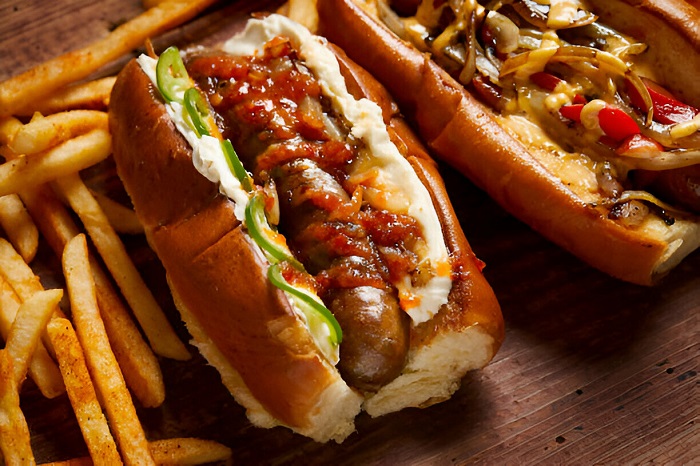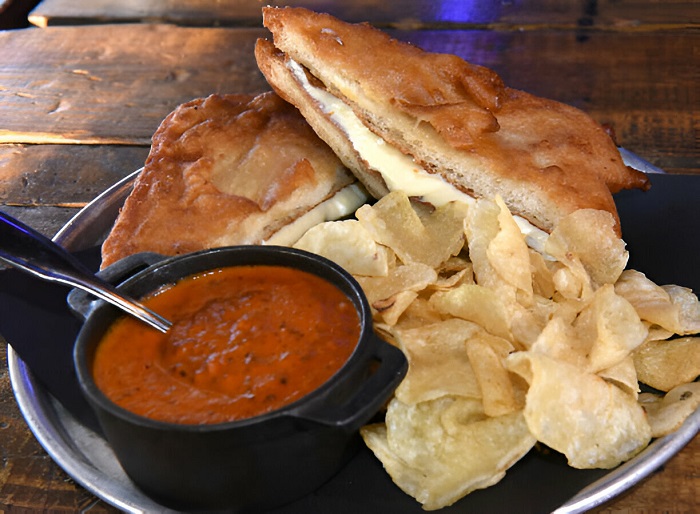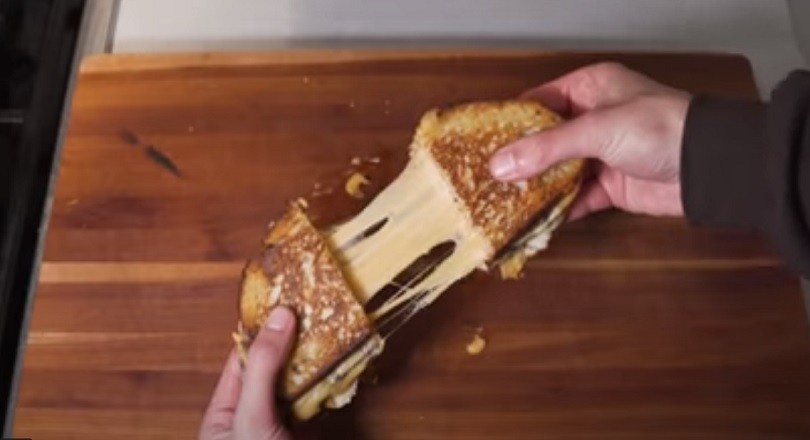Last Updated on February 28, 2025
Dogs can eat grilled cheese in small amounts, but it’s not ideal for their health. Cheese contains fat and salt, which can cause issues.
Grilled cheese sandwiches are a popular comfort food for humans, but sharing them with dogs requires caution. Cheese has high fat and salt content, which can lead to obesity and digestive problems in dogs. Some dogs are lactose intolerant, making cheese consumption problematic.
Always offer small portions and monitor for any adverse reactions. Opt for dog-friendly treats instead, which are formulated to meet their nutritional needs. Remember, moderation is key when giving dogs human food. Always consult your veterinarian before introducing new foods to your dog’s diet. Your pet’s health and well-being should always come first.
Canine Nutrition And Dairy Products

Dogs have specific dietary needs. Their nutrition must be balanced. Dairy products like cheese can be tempting. But are they safe for dogs? Let’s explore the nutritional aspects of cheese for dogs.
Cheese As Part Of A Dog’s Diet
Cheese is a popular dairy product. It is rich in protein and calcium. It also contains vitamins A and B-complex. These nutrients are beneficial for dogs. Cheese can be a tasty treat for dogs. Many dogs love the flavor of cheese.
Cheese can be used as a reward. It is useful for training purposes. Small amounts of cheese are usually safe. Overfeeding cheese can lead to health problems. It can cause weight gain and digestive issues.
| Nutrient | Benefit |
|---|---|
| Protein | Builds muscle |
| Calcium | Strengthens bones |
| Vitamin A | Supports vision |
| Vitamin B-complex | Boosts energy |
Lactose Intolerance In Dogs
Many dogs are lactose intolerant. This means they cannot digest lactose. Lactose is the sugar in dairy products. Symptoms of lactose intolerance include:
- Diarrhea
- Gas
- Vomiting
- Stomach cramps
If your dog shows these symptoms, avoid dairy products. Some dogs can handle small amounts of cheese. Monitor your dog for any adverse reactions.
Consider lactose-free cheese options. These are easier to digest. Always introduce new foods slowly. Watch for any changes in your dog’s behavior or health.
Pros And Cons Of Grilled Cheese For Dogs
Wondering if your dog can enjoy a grilled cheese sandwich? It’s essential to know the pros and cons. Grilled cheese can have both benefits and risks for dogs. Below, we explore the potential health benefits and possible risks.
Potential Health Benefits
- Protein Source: Cheese provides protein, which is vital for dogs.
- Calcium: Cheese contains calcium, which helps strengthen bones.
- Vitamins: Cheese can offer vitamins like A and B12.
Risks And Side Effects
- Lactose Intolerance: Some dogs can’t digest lactose in cheese.
- High Fat: Grilled cheese is high in fat, leading to weight gain.
- Sodium Content: Cheese can be high in salt, which is bad for dogs.
- Pancreatitis Risk: High-fat foods can trigger pancreatitis in dogs.
Consult your vet before feeding your dog grilled cheese. Always prioritize your dog’s health and well-being.
Feeding Your Dog Grilled Cheese Safely

Feeding your dog grilled cheese can be a treat, but safety first. Always consider their health and dietary needs. Here’s how to feed your dog grilled cheese safely.
Appropriate Portions
Dogs should only have small amounts of grilled cheese. Too much cheese can cause digestive issues.
- Small dogs: One or two small bites.
- Medium dogs: A few small bites.
- Large dogs: A small piece, about the size of a quarter.
Choosing Healthier Alternatives
Instead of regular cheese, try low-fat or lactose-free cheese. These are better for your dog’s digestion.
| Type of Cheese | Benefits |
|---|---|
| Low-fat Cheese | Less fat, better for weight control. |
| Lactose-free Cheese | Easier to digest, reduces tummy issues. |
Always use whole-grain bread instead of white bread. Whole-grain bread has more nutrients and fiber.
Avoid using butter or oil when making grilled cheese for your dog. These can add unnecessary fats.
Important: Always check for any allergies your dog may have. Some dogs react badly to dairy or grains.
Frequently Asked Questions
Is Grilled Cheese Okay For Dogs?
Grilled cheese isn’t ideal for dogs. It contains dairy and high fat, which can cause digestive issues. Offer dog-safe treats instead.
Can Dogs Eat Grilling Cheese?
Dogs should not eat grilled cheese. It is high in salt and fat, which can harm their health.
Can Dogs Eat Melted Cheese On Toast?
Yes, dogs can eat small amounts of melted cheese on toast. Avoid large quantities due to potential lactose intolerance. Always consult your vet.
Is It OK if My Dog Eats Cheese?
Yes, dogs can eat cheese in moderation. It’s a good treat but avoid giving too much. Some dogs may be lactose intolerant. Always monitor for any digestive issues.
Can Dogs Eat Grilled Cheese?
Dogs should avoid grilled cheese. It contains dairy and fats which can upset their stomachs.
Conclusion
Grilled cheese can be a tasty treat for humans but may not be ideal for dogs. Moderation is key. Small amounts might be okay occasionally but always consult your vet first. Prioritize your dog’s health and well-being when considering any human foods.
Always choose safe, dog-friendly treats.

